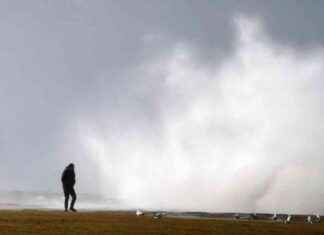Scotland’s educational landscape has long been a topic of discussion, with various viewpoints and ideologies shaping the discourse. In recent times, the challenges faced by the Director of the St Andrews Foundation in addressing hostility towards Catholic schools have come to the forefront of these discussions. Professor Roisin Coll, a respected educationist, has been vocal about the negative attitudes towards Catholic schools and people of faith in Scotland. Her insights shed light on the complexities and nuances surrounding this issue, highlighting the need for a more inclusive and tolerant approach to education in the country.
**The Importance of Catholic Schools in Scotland**
Catholic schools have been an integral part of Scotland’s educational system for many years, providing a unique and valuable experience for students of all backgrounds. These schools offer a holistic approach to education, combining academic excellence with moral and spiritual development. The ethos of Catholic schools is rooted in values such as compassion, empathy, and social justice, creating a nurturing environment for students to learn and grow.
Despite their positive contributions to society, Catholic schools in Scotland have often faced scrutiny and criticism. Professor Coll’s remarks about the hostile attitudes towards these schools reflect a broader societal issue of intolerance and prejudice. In a country that prides itself on being liberal and enlightened, it is disheartening to see such negative perceptions towards institutions that play a vital role in shaping the future generation.
**Challenges Faced by Professor Coll**
As the Director of the St Andrews Foundation for training Catholic teachers, Professor Coll has been at the forefront of efforts to promote inclusivity and diversity within the education sector. Her tenure has been marked by numerous challenges, including defending the existence of Catholic state schools in Scotland. Despite the significant contributions of these schools to the education system, Professor Coll and her colleagues have often found themselves having to justify their presence in a society that seems increasingly intolerant of alternative viewpoints.
In a recent interview, Professor Coll expressed her disappointment at the lack of support for Catholic schools in Scotland. She pointed out that while Catholic schools are successful and cater to a significant portion of families in the country, they continue to face unwarranted negative attention. This trend is particularly concerning given the essential role that Catholic schools play in providing quality education to students from diverse backgrounds.
**Calls for Inclusivity and Support**
Professor Coll’s advocacy for other types of faith schools, such as Church of Scotland and Islam, reflects her commitment to promoting diversity and inclusivity in the education sector. By acknowledging the importance of different faith traditions in shaping the educational experience, she highlights the need for a more comprehensive and inclusive approach to schooling in Scotland.
In a society that prides itself on diversity and tolerance, it is essential to support and celebrate the unique contributions of all faith communities to the education system. By recognizing the value of Catholic schools and other faith-based institutions, Scotland can create a more inclusive and equitable educational environment for all students.
**Addressing Hostility Towards Catholic Schools**
The issue of hostility towards Catholic schools in Scotland is a complex and multifaceted one that requires a nuanced and sensitive approach. Professor Coll’s efforts to address this issue have been commendable, but more needs to be done to create a truly inclusive and tolerant educational environment. By promoting dialogue, understanding, and respect for different faith traditions, Scotland can overcome the challenges faced by Catholic schools and other faith-based institutions in the country.
In conclusion, the challenges faced by the Director of the St Andrews Foundation in addressing hostility towards Catholic schools are indicative of broader societal issues of intolerance and prejudice. By recognizing the value of Catholic schools and other faith-based institutions, Scotland can create a more inclusive and equitable educational environment for all students. Professor Coll’s advocacy for diversity and inclusivity in the education sector serves as a reminder of the importance of promoting dialogue, understanding, and respect for different faith traditions in shaping the future of Scotland’s educational landscape.
































